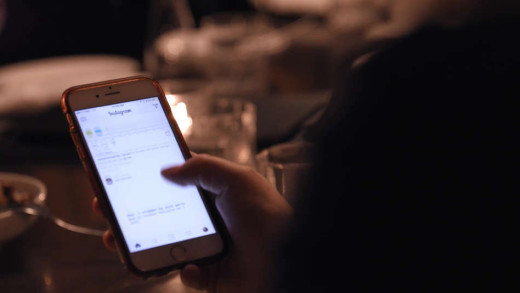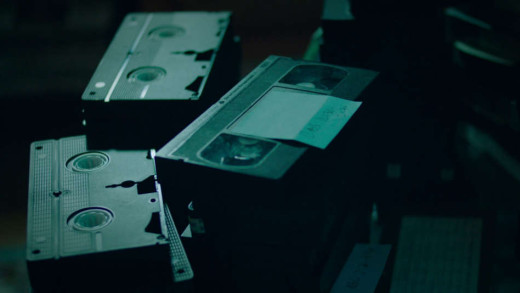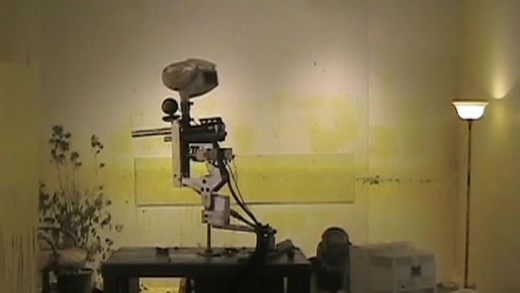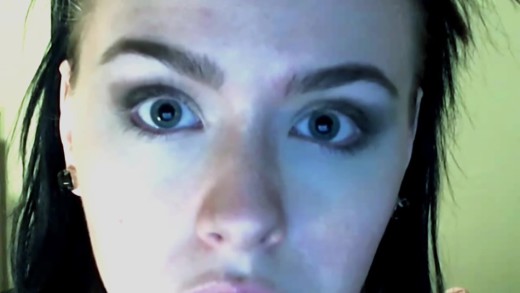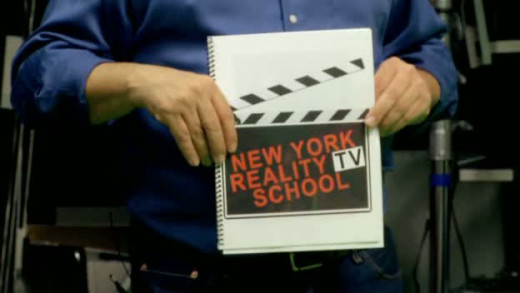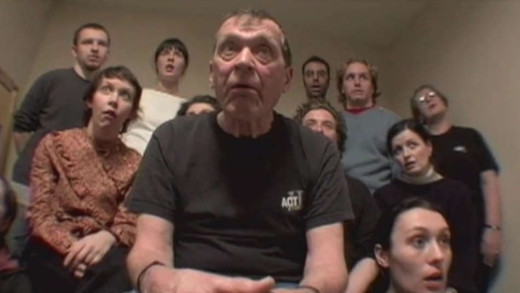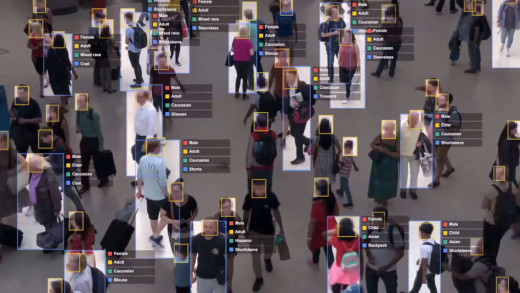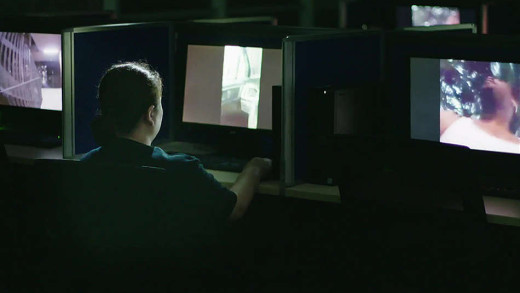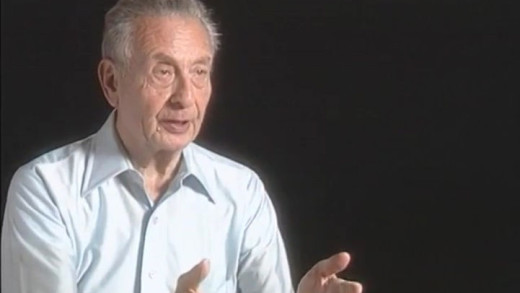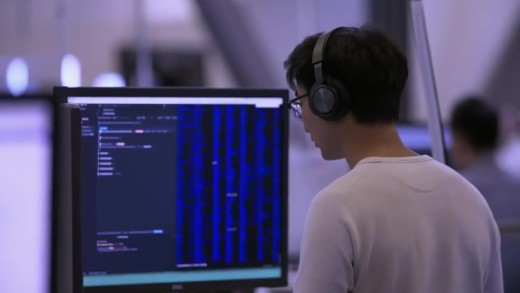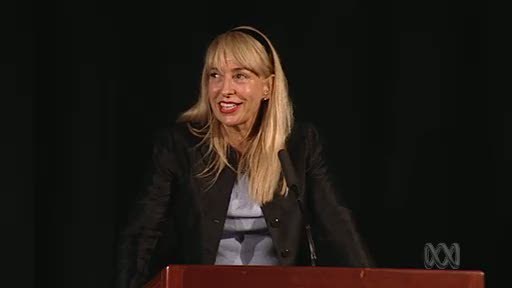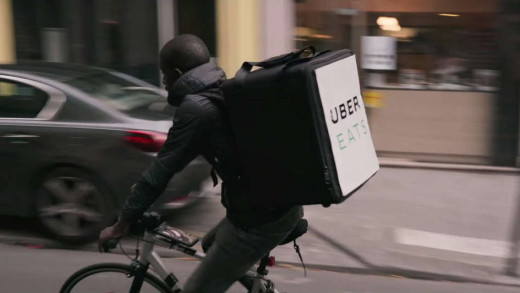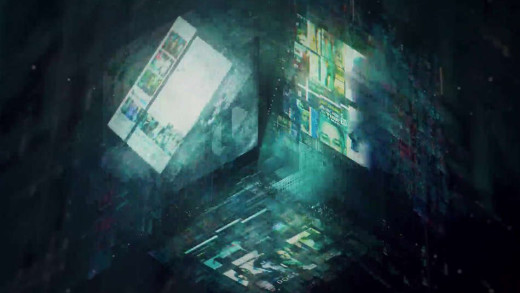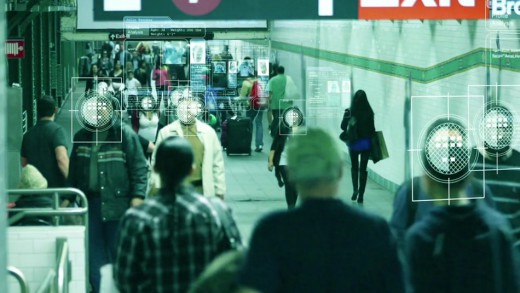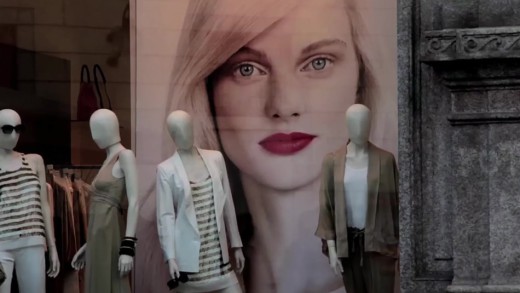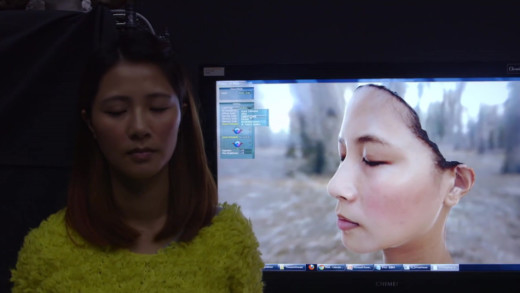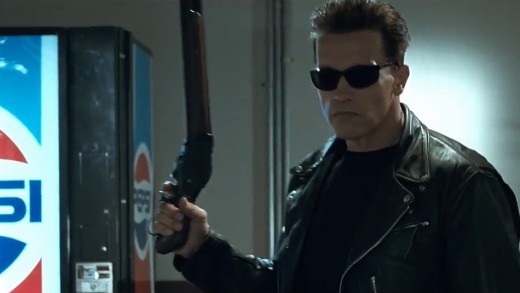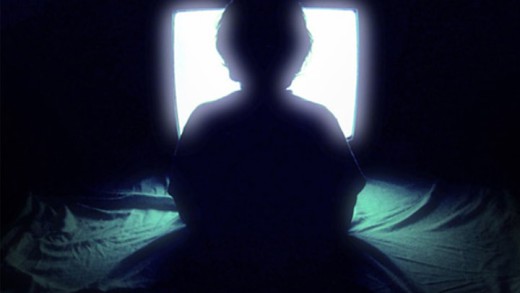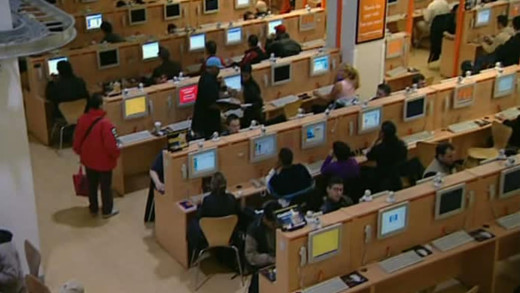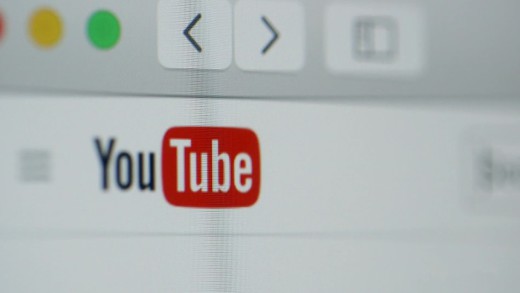A 37-year old mum goes undercover as an 11-year old girl to expose the dangers facing kids on social media platforms like Instagram, Snapchat, TikTok, and Kik. Left unsupervised, young children can be exposed to online predators, grooming, and psychological abuse within minutes. In 2018 alone, the filmmakers of this project alerted the FBI to 99 child predators. In 2019 that number is more than 300 and counting. Each of these cases represents a real child experiencing real harm, and the challenge of this short film is to help parents and schools understand this new reality, while also acting to bring online predators, groomers, and paedophiles to justice.
Public Figure
Public Figure is a measured exploration of this culture's obsession with social media, exemplified through the lives of several Instagram "influencers." The film invites the viewer to question how much of what we see online is real or delusion, while slowly, the "influencers" themselves reveal the extent to which they've completely commodified their lives into enterprises, as giant advertising engines, while also touching on the personal impacts of screen culture addiction. These commentaries are contrasted by views from clinical psychologists and counsellors, whom also question the long term effects of social media culture. While some figures use their commodified lives to inspire, promote a cause, or market their business, all in all, each and every "influencer" is wittingly or unwittingly part of a multi-billion dollar advertising engine that spends more money on marketing than education in the United States. Instagram advertisers will spend $2.38 billion on "influencers" in 2019. Public Figure asks us to reflect on our personal social media use, while questioning how society perceives reality.
Q: Into the Storm is a series that examines the far-right conspiracy theory QAnon that alleges there is a secret cabal of satan-worshipping, cannibalistic paedophiles running a global child sex-trafficking ring and plotting against former United States president Donald Trump. Spanning three years and traversing the globe, the series investigates the movement as it grows in scope and political significance, chronicling its evolution in real time, revealing how “Q” used information warfare to game the internet, hijack politics, and manipulate people's thinking. Filmmaker Cullen Hoback gains unprecedented access to key players in the spectacle, including Jim and Ron Watkins, the father/son team behind the 8chan website that “Q” calls home, and explores their rivalry with Fredrick Brennan, the original creator of the website. The series profiles “Q-tubers,” Q debunkers, political operatives, and journalists who have been closely following the movement since it began in 2017, showing connections between QAnon, President Trump, and political and ex-military operatives, as well as other various right-wing movements associated with 8chan, including "Gamergate" and "Pizzagate" that contextualises QAnon’s influence on culture and politics in the United States.
Marion Stokes was secretly recording television twenty-four hours a day for thirty years. It started in 1979 with the Iranian Hostage Crisis at the dawn of the twenty-four hour news cycle, and ended in 2012 while the Sandy Hook massacre played on television as Marion passed away. In between, Marion recorded on 70,000 VHS tapes, capturing revolutions, lies, wars, triumphs, catastrophes, bloopers, talk shows, advertising--all of which deeply show how television has shaped the world of today. Remarkably prescient, Marion knew this, and saved it as a form of activism, knowing that archiving everything that was said and shown on television was part of the fight for the truth and historical memory, keeping those in power accountable. At the time, the public didn’t know it, but TV networks themselves were not keeping archives of their material, with huge swathes of recorded history lost. If it wasn't for Marion, and the Internet Archive that will soon digitise her tapes for prosperity and free public access, these records would be lost forever. This film is about a radical Communist activist, who became a fabulously wealthy recluse archivist, and whose work was unorthodox, but also genius, even though she would pay a profound price for dedicating her life to such a visionary project.
The average child in the United States spends 40+ hours per week consuming media—the equivalent of a full-time job. This means that by the time children born today turn 30, they will have spent an entire decade of their lives in front of a screen. Remote Control examines the implications of this unprecedented level of exposure by showing the media habits of two families and supplementing their personal insights with interviews from media experts and educators. Revealed is the centrality of media in our lives and far-reaching effects that we are only beginning to understand, as well as ways we might begin to help our children live a life instead of watching one.
How does the military train the solider of tomorrow? Video games. The most popular games are those that replicate as close as possible the war events as seen on the news. Such games now far outpace the biggest Hollywood blockbuster movies, popular music, and best-selling books, combined. What does this complete immersion in high-tech war mean for our political culture? As well as those directly affected by state violence? What does it mean when the technological sophistication of modern militarism become forms of mass entertainment? Returning Fire profiles three artists and activists that decided these questions needed to be answered. We see how Anne-Marie Schleiner, Wafaa Bilal, and Joseph Delappe moved dissent from the streets to the screens, infiltrating war games in an attempt to break their hypnotic spell. The results ask all of us--gamers and non-gamers alike--to think critically about what it means when drones and remote warfare become computer games and visa versa. Can we reflect on our capacity to empathise with people directly affected by the trauma of real war?
Physician and mother of two Dr. Delaney Ruston became interested in how much screen time is too much when her preteen started begging for a smartphone. Ruston saw other parents equally confused on how to balance technology with a young developing mind, so she decided to delve into the science behind screen time to understand how it affects young people's minds and development. Through personal stories and input from leading researchers, the result is Screenagers, a film that sheds light on the impact screen time is having on kids; exploring how learning, playing, and socialising online effects teens' developing attention span, fragile self-esteem, and moral instincts. Screenagers examines the real risks of failing in school, social isolation, and digital addiction. It also explores solutions to handle screen time and provides parents with tools to help young people develop self-control and find balance in their digital lives, rather than rapid-fire thumbs and a six-second attention span.
There are billions of people increasingly glued to 'smartphones' and consumed by the seemingly endless spectacle of 'social media.' But why? Reporter Hilary Andersson seeks to answer this question by tracking down insiders who reveal how social-media companies have deliberately developed habit-forming technology to get people addicted. Former Facebook manager, Sandy Parakilas, tells us the "goal is to addict you and then sell your time." Likewise, Leah Pearlman, the co-creator of the renowned 'Like' button, warns of the dangers of social-media addiction. Through these voices, and many others, Andersson shows how behavioural science is profoundly used by tech companies to keep people endlessly checking their phones, to the end of huge profits.
Split Screen tells the story of January 6, 2021, where an estimated 2,000 people stormed the United States Capitol building, attempting to stop the certification of votes from the 2020 election. What started as a protest became violent chaos, killing several people and injuring over 140. The event was the culmination of years of angst, anger, violence, and confusion, that began stirring years or even decades earlier in the thick of growing polarisation in the United States. Certain media outlets and social media influencers spread content fuelling division and angst in the months leading up to and following the election. Allegations of voter fraud--rejected by state and federal officials in both parties, as well then-Attorney General William Barr--were amplified and emboldened by conservative media, ultimately igniting the rage and frustration of an undeniable portion of people in the United States who get their news and information through big tech, and the slurry of social media echo-chambers.
We live in a world of screens. The average adult spends the majority of their waking hours in front of some sort of screen or device. We're enthralled, we're addicted to these machines. How did we get here? Who benefits? What are the cumulative impacts on people, society and the environment? What may come next if this culture is left unchecked, to its end trajectory, and is that what we want? Stare Into The Lights My Pretties investigates these questions with an urge to return to the real physical world, to form a critical view of technological escalation driven rapacious and pervasive corporate interest. Covering themes of addiction, privacy, surveillance, information manipulation, behaviour modification and social control, the film lays the foundations as to why we may feel like we're sleeprunning into some dystopian nightmare with the machines at the helm. Because we are, if we don't seriously avert our eyes to stop this culture from destroying what is left of the real world.
Starsuckers
By planting a variety of fake celebrity-related stories in the UK media and having tabloid newspapers accept them without corroboration or evidence, Starsuckers navigates through the shams and deceit involved in creating a pernicious celebrity culture, uncovering the real reasons behind the addiction to fame and the corporations and individuals who profit from it.
Steve Jobs: The Man in the Machine is not just another celebratory biographical film about the life of a business man that many around the world grieved in 2011. It's a full rounded critical examination into the fundamentals of a person revered as an iconoclast, a barbed-tongued tyrant, a business sociopath. The real Steve Jobs is revealed like this through candid interviews from those who had close relationships with him at different stages of his life, including the mother of his child, Lisa, that Jobs refused he had, but named a computer after instead. The film also takes us through the evocative essence of the brand of Apple Computers which has captured the population like zombies, and asks the question: What is the legacy of this industry, and the truth of this kind of person that the culture celebrates so much, completely ignoring the darkness?
Stupidity sets out to determine whether our culture is hooked on deliberate ignorance as a strategy for success. From Adam Sandler to George W. Bush, from the IQ test to TV programming, to the origins of the word "moron," this film examines the celebration of dumbing-down in contemporary culture. Featuring opinions and comments from TV personalities to scholars, researchers, and the general public, Stupidity reveals that despite this culture's extensive access to information and education, it continues to choose and celebrate stupidity and ignorance.
Admit it--you don't really read the endless pages of terms and conditions connected to every website you visit or phone call that you make do you? Of course not. But every day billion-dollar corporations are learning more about your interests, your friends and family, your finances, and your secrets--precisely because of this; and are not only selling the information to the highest bidder, but freely sharing it with the government. And you agreed to all of it. With plenty of recent real-world examples, Terms And Conditions May Apply covers just a little of what governments and corporations are legally taking from Internet users every day--turning the future of both privacy and civil liberties into serious question. From whistleblowers and investigative journalists to zombie fan clubs and Egyptian dissidents, this film demonstrates how all of us online have incrementally opted-in to a real-time surveillance state, click by click.
In 2018, Professor Shoshana Zuboff published The Age of Surveillance Capitalism, a monumental book about the new global economy, where the biggest technology corporations extract, manipulate, and trade our personal information, data about our lives, and data about our personalities, on a scale never before possible. How did this happen? In The Big Data Robbery, Zuboff starts with the volatile dot-com boom and bust of the late 1990s and 2000s. How did Google, a company created during that time, survive the bursting of the Internet bubble? Founders Larry Page and Sergey Brin discover that the "residual data" that people leave behind in their searches on the Internet is very precious and tradable, and begin as one corporation of many, the Big Data Robbery, extracting and building huge datasets about people. Zuboff takes the lid off Google and Facebook to reveal a merciless form of capitalism in which the citizen itself now serves as a raw material.
How do online giants such as Facebook and Google deal with problematic content posted to their platforms every minute? They outsource the act of "digital cleaning" to teams of people paid a pittance in countries such as the Philippines, to act as content moderators. It's these hidden low-paid workers, in giant click farms, that spend long shifts removing posts and deleting accounts. So how do their decisions influence what the billions of people using social media all around the world see and think? What are the policies they are told to enforce? Are the cleaners part of the online world of clever hoaxes and fake news, or are they on the frontline of social media spectacle and furor?
Through exploring deep questions about the way mainstream media is organised and perpetuated in concert with technological development, media expert George Gerbner delivers a solid indictment of the way the so-called "information superhighway" is now being constructed. Following on from his solid work looking at the impacts of television on society, Gerbner turns to examining emerging technologies like V-chip and the way they interface with globalisation. This film urges the viewer to struggle for democratic principles in this emerging technoculture.
The Facebook Dilemma aims to open an in-depth investigation into the impact Facebook has had on privacy and democracy in the United States and throughout the world, by revealing how the decisions made by the company as it sought increased wealth and new users, transformed it into a vast surveillance machine, a media company, and a 'hidden hand' in elections and political discourse. Drawing on original interviews from those inside the company, this two part series catalogues some of the ignored warning signs, both inside and outside the company, of Facebook's negative impact, growing from Zuckerberg's dorm-room project and into a powerful global empire.
Neuroscientist Professor Susan Greenfield says today's developing brain is being worryingly reshaped by excessive visual stimulation -- the effect of a culture driven by screens. Biotechnology, nanotechnology, even the internet are all impacting on our brains and could be heralding future generations with different abilities, agendas and even ways of thinking. Her prediction is that we might be standing on the brink of a cataclysmic mind-makeover never before seen...
Millions of people around the world are finding work by-the-job online. The "gig economy" is worth more than $5 trillion worldwide, and seemingly growing. But who are these workers? Seduced by the promise of independence, and control over their working hours and income, people around the world that are lured into the gig economy now face the harsh reality of it algorithmically-driven market place: dangerous working conditions, instability, and the precariousness of their work that can stop overnight in the case of deactivation or a bad review. Through committed characters, The Gig is Up shows that the so-called 'freedom' that is espoused by this technological economy is only an illusion.
The Great Hack is an inside account of the company Cambridge Analytica, which used vast amounts of personal data scraped from portals such as Facebook to manipulate elections throughout India, Kenya, Malta, Mexico, the United Kingdom and United States over the past decade. The company, owned by SCL Group--a British firm that has a background in military disinformation campaigns and psychological warfare--came to public attention after the Brexit campaign in the UK, and soon after, the election of Donald Trump in the United States, both closely worked on by Cambridge Analytica and its billionaire backer, Robert Mercer. This resulted in inquires and investigations into both Facebook and Cambridge Analytica, but the company liquidated, along with its internal documents. Two former employees instead step forward to offer an inside account into the dark world of data mining and personalised propagandising, having some regret for what they have done. The film tracks these characters, as Cambridge Analytica lives on as Emerdata Limited, in the same London office. The Great Hack exemplifies big questions about democracy in the age of targeted information manipulation via the screen, and just how much power over our awareness has been ceded to giant corporations.
The Hacker Wars explores the strange duality of the modern-day computer-hacker as a mischievous provocateur, but also in some cases, societal activists with underlying political fervour, serious or not. The film explores this by profiling some of the renowned characters that have tickled the secretive inner workings of corporations and government agencies for various reasons—ranging from the nefarious and narcissistic, to the political and scandalous. Some do it for the lulz, others do it to prove a point, and others do it to "speak truth to power." In any event, many have faced severe punishments as a result. By following through this, The Hacker Wars touches on issues of whistleblowing, social justice, and power relations, in a time where computer technologies represent extreme power and control. But for whom? And what? This poses the question in deciphering the personalities of the hackers themselves. Are they serious activists with good intentions, or are they driven by insane ideologies?
The Illusionists examines how global advertising firms, mass media, and the beauty, fashion, and cosmetic-surgery industries have together colonised the way people all around the world define beauty and see themselves. Taking us from Harvard to the halls of the Louvre, from a cosmetic surgeon's office in Beirut to the heart of Tokyo's Electric Town, The Illusionists shows how these industries saturate our lives with narrow, Westernised, consumer-driven images of so-called beauty that show little to no respect for biological realities or cultural differences. Featuring voices from prominent sociologists, magazine editors, scientists, artists, and activists, The Illusionists documents a truly global phenomenon, with hegemonic results.
We live in an absolutely saturated media environment of images that span 'real' and fake—whether it's newspaper and tabloid photos, journalism itself, art and culture, or the human body. Images claim to be hardly distinguishable from the originals, while the virtual world is increasingly becoming 'seamless' in the real world. Kids today see a Clown Fish but instead impose their imagery of Finding Nemo. People interact with machines more than they do living beings. The narratives imposed by this technological and media culture are fast seeking to entirely replace the real world with a simulation of it. So what does that mean for the truth? The Industry of Fake explores the shifting boundaries and inequality in journalism and in art, as well as providing a basis to question this culture's fascination with simulacra—a process of mimicry mediated by images that represents the real thing, but is not the real thing. What does it mean if we value our projections or stories about the thing as opposed to the thing in-and-of itself? What does this mean in the real world if we come to value our simulations or representations as more authentic things as opposed to copies or toxic mimics?
By addressing the question of violence and the media from a number of different angles, The Killing Screens presents a comprehensive view on how to think about the effects of the media environment in new and complex ways. In contrast to the relatively simplistic behaviourist model, that "media violence causes real-world violence," renowned media scholar and researcher George Gerbner shows us how to think about the psychological, political, social, and developmental impacts of growing up and living within a cultural environment of pervasive violent imagery and narratives. What are some of the impacts of this culture and what can be done about it?
Based on the comprehensive work of media scholar George Gerbner, The Mean World Syndrome takes aim at the for-profit media system that thrives on violence, stereotypes, and the cultivation of anxiety. The film takes us through how the more television people watch, the more likely they are to tend to think of the world as an intimidating and unforgiving place, while being insecure and afraid of others. We see how these media-induced fears and anxieties provide fertile ground for intolerance, extremism, and a paranoid style of politics that threatens basic social values. The result is an accessible introduction to debates about media violence and more broadly, the effects of the media system. This film is a powerful tool for helping to make sense of the increasingly intense and fractious political climate of today.
The Net explores the back-story of Ted Kaczynski (the infamous 'Unabomber') as a prism to the often unexamined side of the history of the Internet. The film combines travelogue and investigative journalism to trace contrasting counter-cultural responses to the so-called 'cybernetic' revolution of the 1970s. For some whom resist the pervasive systems of digital technology, the Unabomber can come to symbolise an ultimate figure of refusal. But for those that embrace the technologies, as did and do the champions of so-called 'media art', such as Marshall McLuhan, Nam June Paik and Stewart Brand, the promises of worldwide networking and instantaneous communication outweigh any and all of the concerns. The Net links these multiple nodes of cultural and political history, analogous to the Internet itself. Circling through themes of utopianism, anarchism, terrorism, the CIA, LSD, MKULTRA, Timothy Leary, Ken Kesey and the Merry Pranksters, The Net exposes the conspiracies and upheavals, secrets and cover-ups as part of the forgotten subversive history of the Internet.
This short video explores how the online world has overwhelmingly become the popular outlet for public rage by briefly illustrating some of the many stories of everyday people which have suddenly become public enemy number one under the most misunderstood of circumstances and trivial narratives. With the web acting like a giant echo-chamber, amplifying false stories and feeding on the pent-up aggression of the audience watching the spectacle, The Outrage Machine shows how these systems froth the mob mentality into a hideous mess, as a good example of where the spectacle goes and how its intensity has to keep ratcheting up in order maintain the audience attention, in a culture of dwindling attention spans, distraction and triviality.

